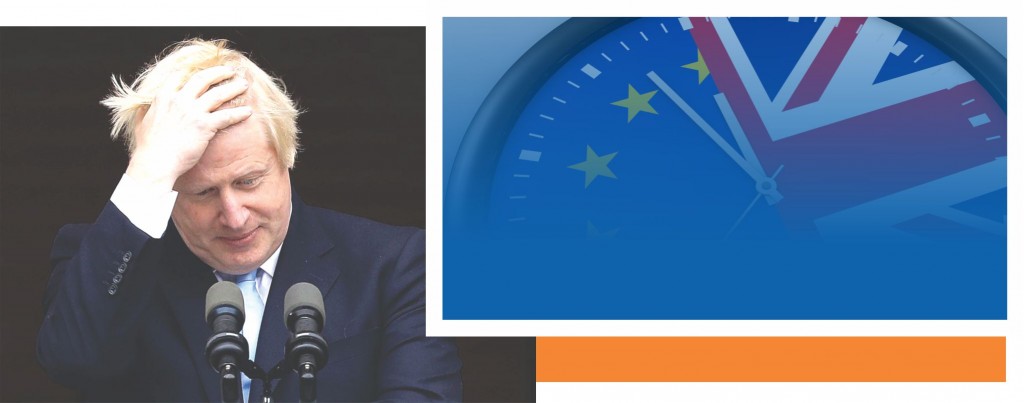The Quandary of a
No-Deal Brexit
Mahmudur Rahman
The British prime minister faces many challenges as the deadline for Brexit comes near
When Boris Johnson became prime minister, he did so on the platform that, come what may October 31, Britain would exit the European Union, deal or no-deal.
Within days, he had set up two separate groups: One that would prepare for a no-deal scenario and the other that would try and prise open some chink in the European Union’s hard-balled stand on a deal.
The sticking point was, and remains, the infamous back stop, a sort of physical border between Northern Ireland and the Republic of Ireland, neither of whom were well inclined to such a pass.
But Johnson’s approach to a no-deal exit has now come up against a wall in the form of a new bill that was being debated in the House of Lords after clearing the House of Commons.
It’s strange in a way that no new ideas have been floated regarding an alternative to the back stop by Johnson’s government resulting in the resignation of a key cabinet minister. That nothing new has emanated from the time of Theresa May’s tenure isn’t that much of a surprise because for all the posturing, no one went public on any alternative and the EU repeatedly reiterated it wasn’t reopening the negotiations.
Johnson continues to plod along, this time prepared to try and raise his lost majority in the House by seeking new elections.
But whether that happens or not, his no-deal exit now means he will be breaking the law. Chancellor of the Exchequer Sajid Javid, who just declared an end to the years of austerity, disagrees with Amber Rudd, the minister who resigned, in that most of the government’s preparations were heading for a no-deal proposition.
Javid is suggestive that negotiations continue for a deal without disclosing even the elements of what the points of discussion are. And even in the midst of all this, parliament wants another extension of the timing of the exit before any no-deal scenario is enacted.
The ordinary Britons are left scratching their heads to figure out what an extension can do or will achieve.
Johnson’s meetings with Angela Merkel and Emmanuel Macron didn’t reveal anything new, with Macron clearly unimpressed. Unravelling the tiers of red tape immaculately bound in to the EU’s bureaucratic tangle has brought matters to such a pass that persons such as Johnson, that put their weight behind a “leave” scenario, probably missed the trees for the wood.
The prime minister keeps referring to technological solutions to the back stop without elaborating how this replaces the inevitable hard border. But the crux of the problem is that the back stop threatens to build a wedge of free movement of goods between the north and remainder of Ireland that had been guaranteed in the Good Friday agreement that ended years of conflict between Britain and the IRA.
It must be noted that IRA’s leading political wing Sinn Fein participates in elections, wins seats, but doesn’t attend parliament in order not to swear allegiance to the Queen of England.
As it stands, the current deadline for an exit is October 31, and it will be interesting to see whether Boris Johnson backs down and toes the line parliament has set out, including some of his own Conservative MPs who have since been expelled from the party.
Provided the EU agrees to another extension of time, that seems the only way forward unless some midnight parleys are going on behind the scenes that most are not privy to.
 Jahangir's World Times First Comprehensive Magazine for students/teachers of competitive exams and general readers as well.
Jahangir's World Times First Comprehensive Magazine for students/teachers of competitive exams and general readers as well.



